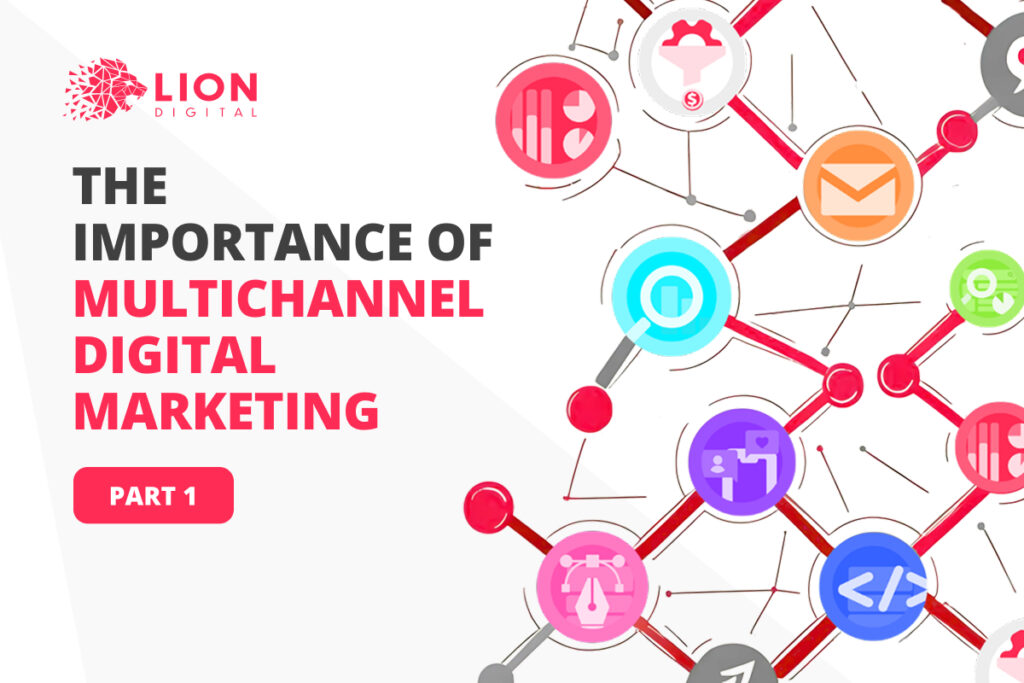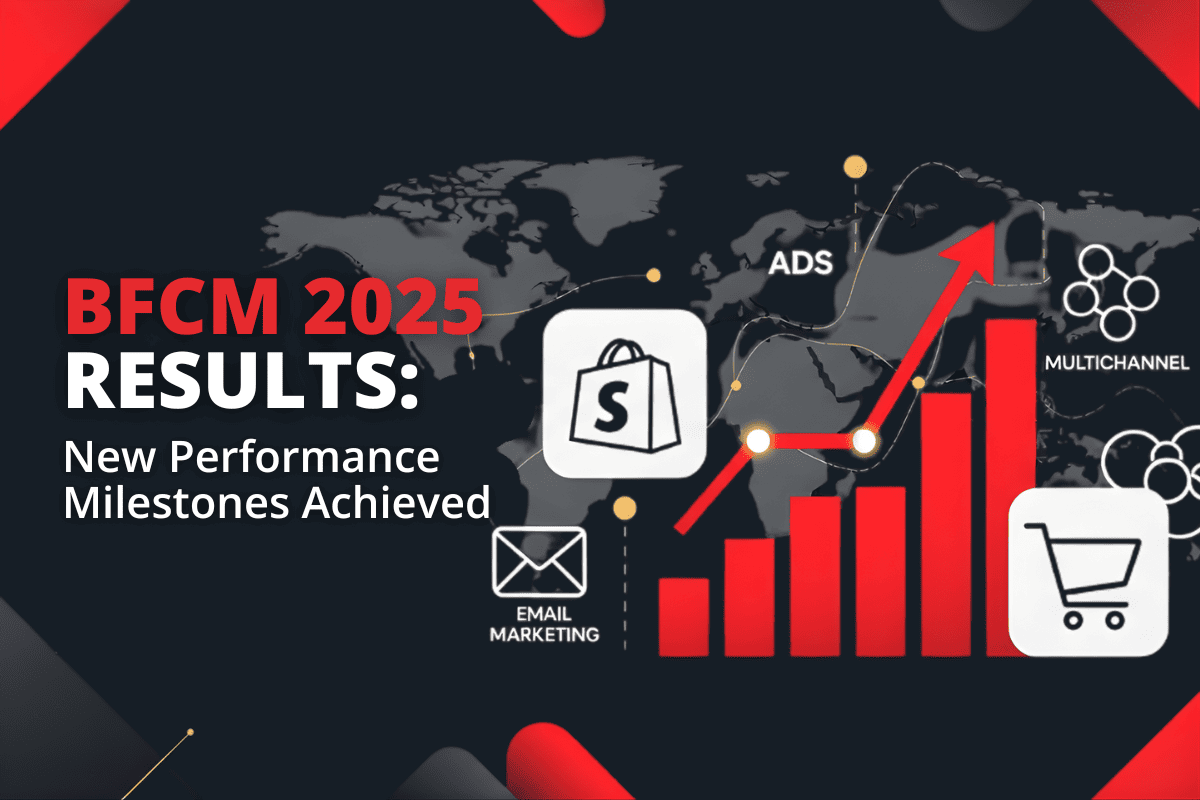
Technology changes the way we live, think, and do business. Having a website and a social media page is not enough now to capture and convert your target audience. Today’s consumers interact with brands across 15 – 20 touchpoints before purchasing. They seamlessly switch between devices, platforms, and media: researching on mobile on the way to work, comparing options on their laptop at lunch, and making final decisions while browsing social media at home. In this reality, businesses must find a new approach to their marketing. They need a multichannel strategy that meets customers wherever and whenever they’re ready to engage.
What is Multichannel Marketing?
Multichannel marketing uses multiple communication platforms to promote products or services under a unified marketing strategy. Each channel plays to its strengths but collaborates with others to target prospective buyers.
At its core, multichannel marketing is about creating a comprehensive presence to ensure customers discover your brand, whether browsing social media, checking email, or googling.
Multichannel vs. Omnichannel vs. Cross-Channel Marketing
The terms are often confused and used interchangeably, but they mean different marketing approaches.
Multichannel marketing uses multiple independent channels, each functioning separately with minimal coordination. The goal is to maximise reach by providing various touchpoints for customer interaction. For example, a retailer might run an email campaign to promote current sales, use social media ads to showcase new products, and sell some collections in-store with a discount. There is no consistent messaging across channels, but each campaign contributes to increasing sales.
Omnichannel marketing connects all channels to create a seamless, unified customer experience. Every interaction point maintains consistent messaging asa part of one journey. A customer might browse products on a mobile app, receive a personalised discount for that specific collection via email, and complete their purchase in-store using a discount code from the email. Here, each touchpoint builds upon the previous interaction.
Cross-channel marketing serves as a middle ground between multichannel and omnichannel approaches. Multiple channels interact and coordinate with each other to create cohesive customer experiences. However, the connection isn’t as comprehensive as with omnichannel marketing. For instance, customers see social promos about some products and receive emails with discount codes for the same products. They can use those discounts online or in-store. All channels work around the same messaging, yet maintain some independence.
Multichannel Marketing Advantages
Multi-channel approach allows you to reach a wider audience and provides valuable insights into your ideal customers. It helps your brand connect and resonate with prospective buyers, boosting conversions and driving sales.
Let’s explore what exactly your business may achieve.
Enhanced Customer Reach and Visibility
Multichannel marketing dramatically expands your potential audience by engaging customers across several communication platforms. You can use YouTube for detailed product demonstrations, TikTok for trend-based awareness campaigns, LinkedIn for B2B relationship building, etc. These different channels bring different audiences. Gen Z consumes content through TikTok and Instagram, Boomers remain active on Facebook and shop in-store, while Millennials will likely Google your brand’s website for shopping.
More channels convert into more potential customers.
Improved Customer Experience
Modern consumers expect seamless, personalised interactions across all touchpoints. Multichannel eCommerce marketing enables brands to provide consistent experiences while tailoring content to each platform’s unique characteristics and user behaviours. Ultimately, multi-channel now transforms into a cross-channel strategy, where customer data from one channel informs and enhances experiences on others. It helps build stronger emotional connections between consumers and brands.
Data-Driven Insights for Attribution
Various channels generate diverse data sets that provide comprehensive insights into customer behaviour, preferences, and purchasing patterns.
Advanced attribution modelling helps marketers understand the true impact of each channel on conversions and customer lifetime value. Cross-channel data analysis enables more informed budget allocation and strategy optimisation.
Risk Mitigation and Diversification
Relying on a single marketing channel creates significant vulnerability to algorithm changes, platform policy updates, or market shifts. Multichannel strategies provide essential protection by distributing risk across multiple platforms and approaches.
When one channel experiences reduced performance, other channels can maintain consistent lead generation and revenue streams. It ensures business survival and stable growth.
At LION Digital, we’ve assisted many eCommerce brands that relied on a single or too few marketing channels and were losing revenue. One standout scenario involved a newly acquired business that could not advertise on paid media because of a prohibited category, hadn’t activated email marketing, and lost organic search visibility because its website went down. Their primary revenue stream was gone, and it paralysed the business.
Thanks to our multichannel expertise, LION was able to resolve the issue quickly. We rebuilt their SEO visibility and marketing campaigns and got the client’s revenue back up to where it was in 30 to 60 days.
Shorter conversion time
The marketing principle of effective frequency suggests that consumers need multiple exposures to advertising messages before taking action. Some studies indicate up to seven touchpoints for initial awareness and significantly more for conversion.
Multichannel presence creates natural opportunities for repeated exposure through diverse contexts. Customers might discover your brand through social media posts, search results, email communications, and display advertising.
Repeated exposure across multiple channels significantly reduces the time between initial awareness and final conversion.
Better Overall Results
Multichannel marketing creates synergistic effects where individual channel performance combines and amplifies overall results. Advertising might generate initial website traffic, while SEO nurtures those visitors through tailored content and thoughtful website structure, and retargeting social campaigns capture those who showed purchase intent but didn’t immediately convert.
Each step complements another to move prospects closer to purchase decisions. This integrated approach drives higher conversion rates than what individual channels can provide in sum.
The Challenges of Multichannel Marketing
Despite its significant advantages, multichannel marketing may be hard to implement due to several complex challenges:
- Strategic approach. Many agencies and brands see multichannel marketing as a simple distribution of content across multiple platforms. However, you won’t get the desired results without strategic planning across all channels. Marketers should consider how customers move between channels and how these touchpoints should work together to guide prospects through the buying journey.
- Technical hurdles. Managing multiple channels simultaneously requires sophisticated coordination to maintain consistent messaging, adapt content for each platform, and analyse the results. This approach involves new technology platforms, data management systems, and organisational processes that some companies aren’t prepared to implement.
- High resource requirements. Successful multichannel marketing demands significant investments in time, personnel, and technology. Each channel requires specialised knowledge, dedicated content creation, and ongoing optimisation. That’s a whole team of experts. Moreover, all channels should stay connected and contribute to one goal, so you can’t distribute the tasks to different departments.
- Attribution problems. Determining which channels deserve credit for leads and conversions becomes increasingly difficult as customer journeys span multiple touchpoints. Without proper analytics and attribution modelling, you may just lose money on ineffective channels and get disappointed in the multichannel approach.
Building a Multichannel Marketing Plan
Multichannel marketing is complicated and resource-consuming. It requires a clear strategy, expert execution, and ongoing performance analysis. Ultimately, it requires a professional approach with a dedicated team working on each course – that’s what we do at LION.
As a leading marketing agency, we help brands craft tailored multichannel strategies that drive results. You can expand your reach, speed up conversions, and build long-term customer relationships.
Contact our team to start building an efficient multichannel plan. It’s your chance to dominate the market!








